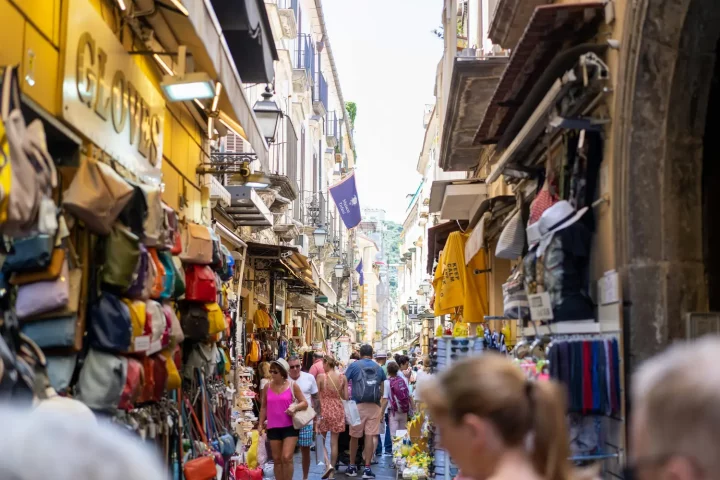Beyond Italy’s picturesque landscapes and rich cultural heritage lies a diverse range of living costs that vary significantly by region. Understanding these regional variations is crucial for those considering moving to this captivating country. Major cities like Rome and Milan typically have a higher cost of living compared to smaller towns and rural areas.
While these bustling metropolitan areas offer more job opportunities, amenities, and vibrant lifestyles, they also come with higher expenses, especially in terms of housing and daily living costs. Conversely, smaller towns and rural areas provide a more affordable lifestyle, often paired with a slower pace and a strong sense of community.
Housing and rent
Housing is one of the most significant expenses for anyone living in Italy. In major cities such as Rome, Milan, and Florence, rental prices can be quite high. Renting a one-bedroom apartment in the city center can cost between €800 to €1,500 per month.
In smaller towns, the cost can drop to around €400 to €800. Furnished apartments typically come with a higher rental price, but they save you the hassle and cost of purchasing furniture. If you think purchasing a house is a better option, you’ll find more affordable prices in the Italian countryside.
It’s possible to find homes starting at around €20,000. However, if you’re seeking something more luxurious, multi-million euro mansions are available in Tuscany. For a medium-sized apartment in the same region, prices typically range from approximately €80,000 to €150,000. In urban areas, such as major cities, prices generally start at €200,000 and can go much higher depending on the location and amenities.
Food and daily expenses
Food costs in Italy vary depending on location and lifestyle. On average, an individual can expect to spend around €200 to €300 per month on groceries, while a family of four might spend between €500 to €800.
Supermarkets are convenient and offer a wide range of products, but local markets often provide fresher produce at potentially lower prices. Shopping at local markets not only supports small businesses but also allows you to enjoy seasonal, high-quality ingredients that are central to Italian cuisine.
Take advantage of specialized assistance to secure your passport for a borderless future.
Public and private transportation
Italy has an extensive public transportation system, including buses, trams, and trains, making it easy to get around without a car. Monthly public transportation passes cost between €35 to €50 in major cities, offering unlimited travel on local transit systems.
For those who prefer driving, owning a car involves additional expenses such as insurance (ranging from €400 to €1,000 annually), fuel, maintenance, and parking fees. Fuel prices in Italy are among the highest in Europe, averaging around €1.60 per liter, making public transportation a more economical choice for many residents.
Healthcare and education
Italy’s healthcare system is highly regarded, offering both public and private options. The public healthcare system, funded through taxes, provides citizens and residents with access to a comprehensive range of medical services at minimal out-of-pocket costs.
However, temporary visitors are responsible for covering their healthcare expenses in full. Private healthcare plays a complementary role in the public system, offering shorter waiting times for certain services.
Education in Italy is also well-developed, with public schools and universities providing high-quality education at low or no cost. If you are a non-EU citizen, expect higher costs. Private educational institutions, including international schools and universities, offer more options but can be quite expensive, with tuition fees ranging from €3,000 to €35,000 per year.
Entertainment and leisure
Entertainment and leisure activities in Italy can vary widely in cost, depending on preferences and lifestyle. Cultural activities such as visiting museums, attending concerts, or exploring historical sites are relatively affordable, with many offering discounts or free entry on certain days.
Dining out can range from budget-friendly trattorias to high-end restaurants, with an average meal at a mid-range restaurant costing around €10 to €30. For those looking for free or affordable leisure options, Italy offers beautiful public parks, beaches, and events that can be enjoyed without breaking the bank.
Advantages of Italian citizenship related to cost of living
Obtaining Italian citizenship can provide significant financial benefits, particularly for those residing in Italy. Italian citizens can take advantage of various tax benefits and incentives designed to support entrepreneurship.
Additionally, Italian citizens have access to free or subsidized public services, including healthcare and education, which can significantly reduce the overall cost of living.
Living in Italy offers numerous economic advantages, especially for those with Italian citizenship. The country’s rich culture, excellent public services, and varied lifestyle options make it an attractive destination for many.
For those considering a move to Italy, understanding the cost of living and the benefits of citizenship is crucial. Services like io.citizen can provide valuable assistance in navigating the complexities of obtaining Italian citizenship, ensuring a smooth transition and helping you fully enjoy the advantages of living in Italy.
By leveraging these services, you can make informed decisions and embrace the opportunities that come with your new life in this beautiful country.






